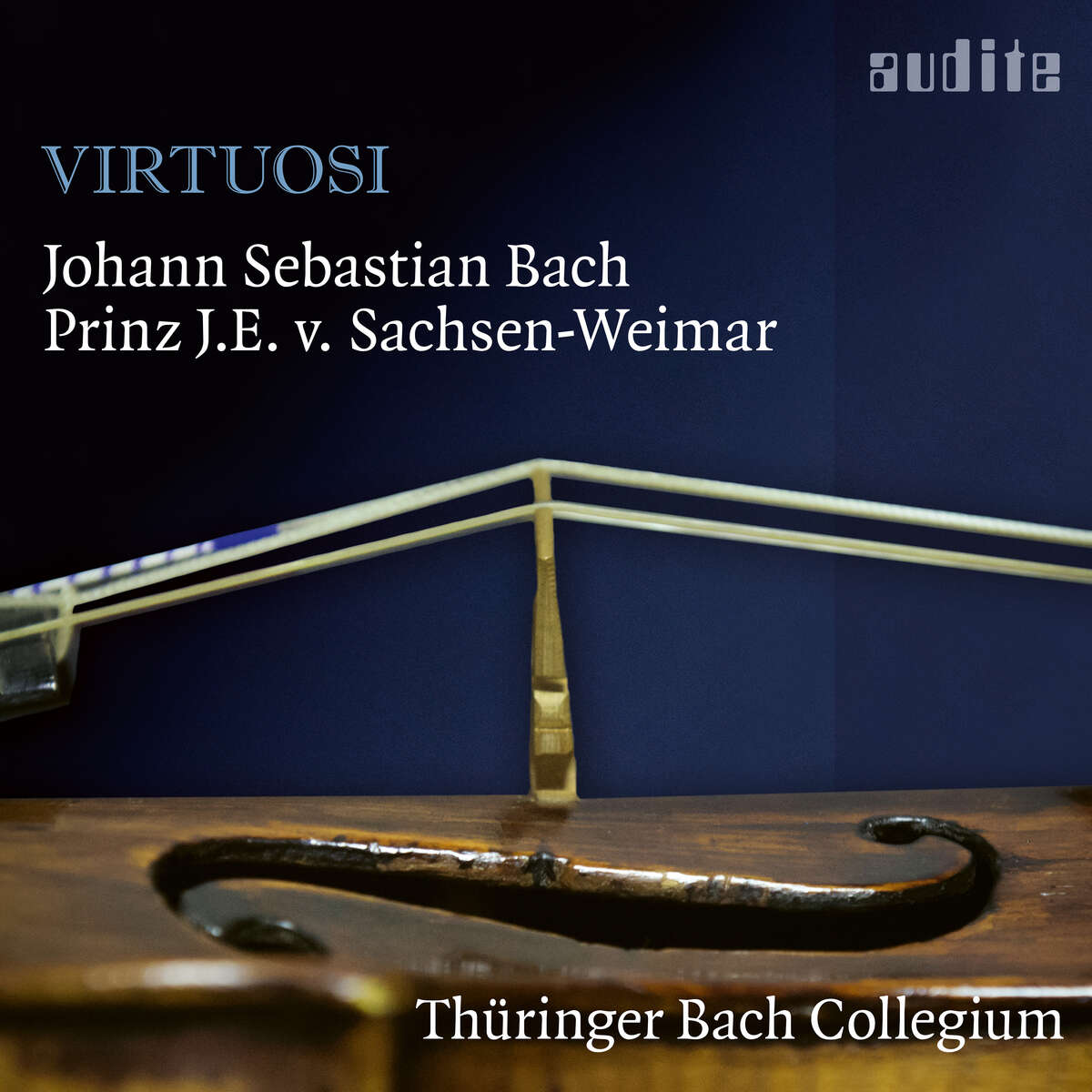Virtuosi
Johann Sebastian Bach & Prinz J E v. Sachsen-Weimar
Thüringer Bach Collegium, Gernot Süßmuth
audite 97.790. 66’54

The Thüringer Bach Collegium are based in Arnstadt, home to various Bachs since 1620 and one of five Thuringian towns associated with the young Bach. In 1703, at just 18 years old, Bach (then a court musician in the chapel of Duke Johann Ernst III in Weimar) was asked to check the new organ of the Arnstadt Neue Kirche and was soon after was appointed as organist. He stayed for four years, apparently “confusing” the congregation with his harmonisation of the chorales and running into probems with singers and the church authorities, culminating in his famous 1705/6 walk to hear Dieterich Buxtehude in Lübeck, overstaying his approved absence by several weeks.
He then moved briefly to Mühlhausen (and was succeded by his cousin Johann Ernst Bach) before returning to Weimar as organist and director of music where he met the young music-loving, and tragically short-lived, Prince Johann Ernst IV of Sachsen-Weimar, nephew of the reigning Duke and a pupil of bach’s cousin, Johann Gottfried Walther. Bach knew the young prince’s compositions and arranged some of his Italian-influenced concertos for keyboard. The Thüringer Bach Collegium’s debut recording was of some of the concertos of the Prince.
This recording feature two examples of Bach’s organ versions of Johann Ernst’s composition, the three-movement Concerto for Organ in G, BWV592 and the short Concerto, BWV595. Although most of the recording was made in the Oberkirche rather than the Bachkirche (formally the Bonifaziuskirche or Neue Kirche), I am told that the organ pieces were recorded in the Bach church, although there is no indication in the CD notes to confirm that. The Bachkirche organ has changed a lot since Bach’s days, but has its roots in the 1703 organ with the case and some of the pipework that Bach knew. It is far closer to the sound world of Bach than the 1902 Sauer in the Oberkirche. Jörg Reddin plays with clarity and precision.
The other organ piece is an Allegro from Walther’s Concerto in D minor, an arrangment of a piece by Torelli. The young Prince is represented by a reconstruction of violin concerto. The remaining Bach pieces put the soloists of the Thüringer Bach Collegium through their paces – Gernot Süßmuth, David Castro-Balbi & Raphael Hevicke, violins, and, in particular, oboist Clara Blessing.
One of the problems with this recording is the availability of all the pieces on other recordings, performed, dare I say, by rather more sophisticated ensembles. The playing here has a rather rustic quality, with punchy rhythms and forceful playing. The recorded sound adds to the boldness of the performance with a very close acoustic image, as though you are sitting in the front pew of the church. A promotional video can be viewed here.
